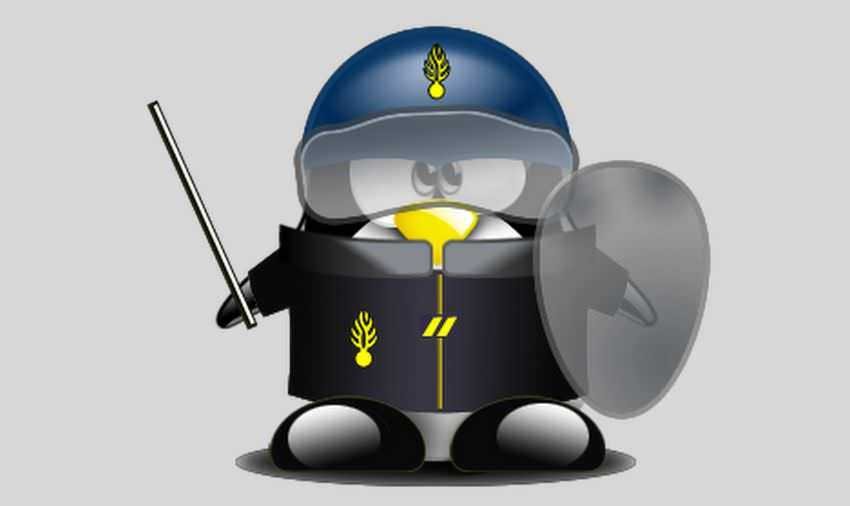Στην παρακάτω δημοσίευση θα προσπαθήσουμε να δώσουμε μερικές tips για την προστασία συστημάτων εργασίας Linux. Θα βρείτε συμβουλές για άτομα που εκτελούν μεμονωμένα Linux Workstations (για παράδειγμα, οικιακοί χρήστες ή χρήστες μικρών επιχειρήσεων).
At first:
Do not assume that a Linux installation is safe from viruses and spyware.
Many of the Linux security hazards are common in Windows and Mac computers.
Οι περισσότερες σύγχρονες διανομές Linux παρέχουν ορισμένα βασικά χαρακτηριστικά ασφαλείας (αυτόματες ενημερώσεις λογισμικού/υπηρεσιών, καταγραφή συμβάντων, έλεγχος πρόσβασης και λειτουργίες τείχους προστασίας ή firewall όπως ονομάζεται), οι οποίες είναι συχνά ενεργοποιημένες από προεπιλογή. Όσοι εγκαθιστούν κάποιο σταθμό εργασίας Linux θα πρέπει να έχουν μια βασική κατανόηση του λειτουργικού συστήματος και αν χρειαστεί, να αναζητήσουν περαιτέρω καθοδήγηση (όπως από την επίσημη ιστοσελίδα διανομής του Linux, επίσημα ηλεκτρονικά Linux Forums ή λίστες αλληλογραφίας για τη συγκεκριμένη διανομή Linux που usestai).
The dangers
Dangers of behavior
Many risks, such as fraud, phishing, spam and theft ID cards, they apply to both Linux users and users of other operating systems.
Bad user options, such as weak or no passwords, non-tracking of event logs, and wrong Linux software settings.
Technological Dangers
The risks for Linux Workstations may be increased due to unnecessary services and open network ports.
Failure to quickly update or update Linux software and services, especially with published vulnerabilities.
Running inherently unsafe services, such as using a system designed for use on a local network over the Internet.
Risks of exploitation
Social engineering, information theft.
Spam, trojans, botnets, back doors, viruses, rootkits.
Denial of service attacks.
Unauthorized scaling of rights.
Protect your information and workstation
Getting started
1. Download your Linux operating system software (including binary files, installation and repair files) from trusted sources, such as an official Linux distribution CD / DVD or the legitimate Linux distribution site. It would be a good idea to download the installation CD / DVD from torrent, because there are many distributors that will protect you more than a hacked official website that distributes infected content. Validate ISO with checksum.
2. Configure Linux partitions with multiple partitions (using fdisk (or another similar).) Create a separate root partition, swap, binaries, and user file space.
3. Check the authenticity of all Linux operating system software before installing, validating their digital signatures and / or checksum values.
4. Avoid logging in as privileged user, like root. Log in with a non-privileged user account and use the su command to perform administrative tasks.
5. Turn autorun (or equivalent) off to prevent media from running automatically.
6. Configure user accounts to lock the session after a predetermined period of inactivity (for example 15 minutes).
7. Keep your Linux up to date by regularly checking for updates and operating system and application updates.
Set up services and users
1. Disable or restrict all unnecessary services and unnecessary boot scripts such as Bluetooth, USB, wireless networking and infrared.
2. Avoid using unsafe management programs such as rlogin, telnet, tftp, ftp, rsh and rexec, and use secure remote file, file transfer and shell programs such as sftp, scp and ssh.
3. Remove unnecessary user accounts (for example, visitors) and groups that you do not use and make sure that all user accounts use a password before they are given access to the Linux workstation.
4. Use strong passwords for all user accounts on the Linux workstation (minimum eight characters, combinations of chapters, pedestals, alphanumeric, and special characters).
5. Protecting Linux workstations requires a number of activities, many of which concern all computers regardless of the operating system used. For example, protect the boot sequence, set file permissions, record events, backup, and track suspicious files or activity.
6. People who need more detailed tips on protecting Linux workstations (firewall, virus protection, disk and file encryption, email protection, Web browser configuration, and backup software) should consult specialists from individuals or organizations specialize in Linux security.



